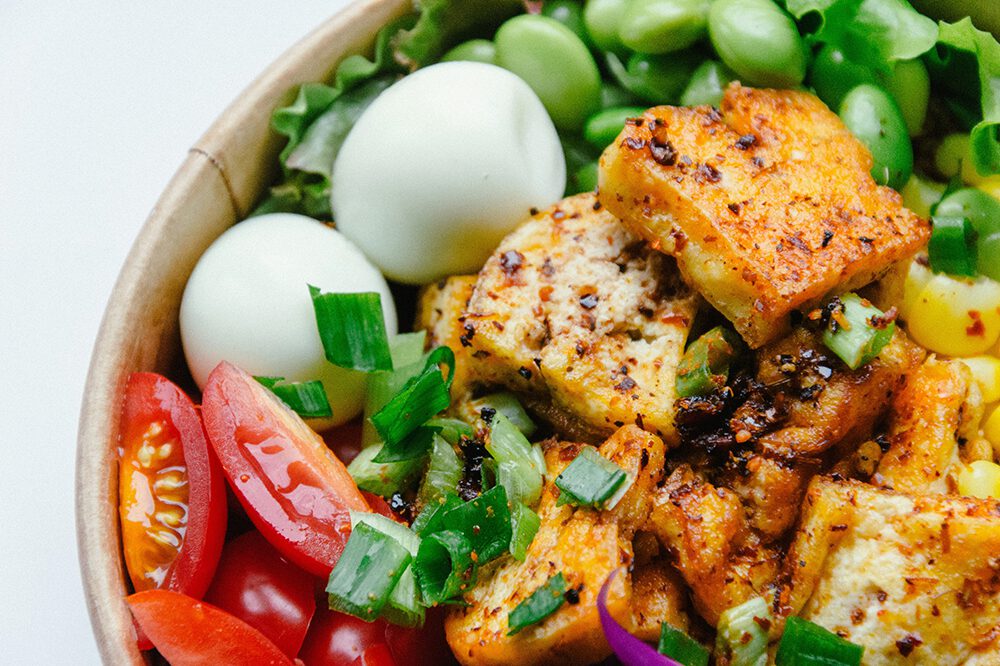How Much Protein You Should Eat Per Day
Protein is a macronutrient, which means our body needs it in large quantity. In this article we will look at how much protein you should consume in a day.
Protein is the building block of the body. They are used to make muscles, tendons, skin, synthesis of hormones, neurotransmitters and many others major body functions.
Protein is made of twenty different amino acids. Nine of these amino acids are essential, which means that your body can't produce them. As a result, they must come from food.
The quality of a protein is defined by its essential amino acid composition, its digestibility and bioavailability: DIAA (Digestible Indispensable Amino Acid).
Animal proteins tend to have higher quality than plant-based proteins.
An active person needs more protein than a sedentary one.
Research has shown that a higher protein intake can help you gain muscle mass and increase strength if you work out accordingly.
Additionally, having a higher protein intake when you're trying to lose weight can help maintain your muscle mass while you're being in a caloric deficit.
Studies have come with different numbers regarding the most optimal protein intake as an active person and it tends to vary between 0.7 gram to 1 gram per pound of bodyweight (1.5 grams to 2.2 grams per kilogram).
Examples:
- Average active male:
- Weight: 198 pounds (90 kgs)
- Protein intake: (139-198) grams of protein per day
- Average active male:
- Weight: 171 pounds (78 kgs)
- Protein intake: (120-171) grams of protein per day
Someone who is not active doesn't need as much protein as someone who works out regularly.
They should aim for 0.4 grams to 0.6 grams per pound of bodyweight (0.9 grams to 1.3 grams per kilogram).
Examples:
- Average sedentary male:
- Weight: 198 pounds (90 kgs)
- Protein intake: (79-119) grams of protein per day
- Average sedentary male:
- Weight: 171 pounds (78 kgs)
- Protein intake: (68-103) grams of protein per day
Whether you want to build muscle, be healthy or lose weight, it is recommended to consume whole foods instead of powders or processed foods.
Protein powder is not required, but it can be beneficial to have it as a post-workout snack.
If your body doesn't need the extra protein provided, it will convert it into glucose (gluconeogenesis), which will be then placed in your glycogen stores. However, if your glycogen stores are already full, this excess will be converted and stored as fat.
Fact: 4 Tips to Stay Healthy at the Grocery Store
Nutrition plays a big role in achieving your health and fitness goals.
Therefore, it's important to set yourself up for success and have healthy food options at home, and it all starts at the grocery store.
Here are 4 effective tips for healthy grocery shopping:
Never go to the grocery store hungry.
Your body will be craving junk food and you will be tempted to buy more food than you need.
More info on how to prevent junk food cravings.
Your grocery list should reflect the food that you want on your plate. So aim for:
- 1/2 fruits & vegetables
- 1/4 legumes & grain products
- 1/4 protein (eggs, meat, fish...)
More info on what healthy foods you should have on your plate
Plan a few meals ahead of time and use them to create your grocery list.
It will help you buy fresh food and avoid food waste.
If you're looking for a meal plan, check these out:
Sales are fantastic for whole foods, as long as you eat what you buy.
You could buy meat/fish or frozen vegetables that are on sale and keep them in your freezer.
More info on how to stay healthy at the grocery store.
Here’s a plan for women that will help you build healthy habits:
And for men:
- Protein is made of twenty amino acids.
- There are nine essential amino acids that need to be provided by food.
- The quality of a protein is indicated by DIAA (Digestible Indispensable Amino Acid).
- An active person should aim for 0.7-1 grams per pound of bodyweight (1.5-2.2 grams per kilogram),
- A sedentary person should aim for 0.4-0.6 gram per pound of bodyweight (0.9-1.3 grams per kilogram).
- Protein powders are not required, but they have some benefits.
- Protein can get converted to glucose or fat.
